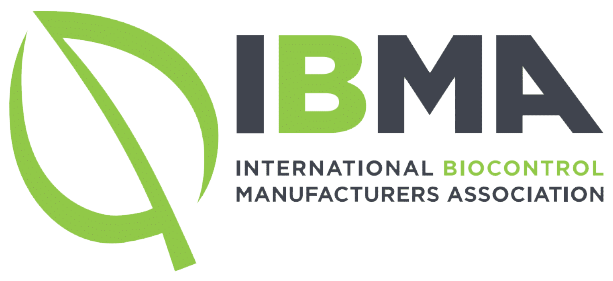Executive Summary
Following the discussion on harmonisation of approaches proposed by the EU council in 2021 The International Biocontrol Manufacturers Association (IBMA) wishes to put forward the position that it fully supports a harmonised approach to procedures with regards to use and release of Invertebrate Biocontrol Agents (IBCA’s) in the EU.
IBCA’s will make a critical contribution in the realisation of the EU’s overarching Farm to Fork and Green Deal policy goals, such as the 50% reduction of pesticide use and risk by 2030 and the 25 % share of organic farming. Maintaining a proportionate regulatory framework that encourages innovation and entrepreneurial initiative while also ensuring trust in environmental safety is essential for the invertebrate biocontrol producers to contribute to their full potential.
IBMA considers existing regulation to be sufficient but does recognize there is scope for more consistency between national legislations of different EU countries.
This should be fit for purpose and focused on the goal of creating opportunities for BCA use by farmers at competitive costs, while maintaining high standards of safety and hygiene. No additional hurdles to market entry that do not add to the safety of humans or the environment should be imposed.
National legislation inspired and guided by the existing EPPO standard PM6 would be valuable:
- EPPO guidance maintains an appropriate distinction between classical and augmentative biocontrol.
- EPPO guidelines also address aspects of identity and purity of the material, thus providing effective, safe and sustainable solutions to growers.
Thus, IBMA advocates that all the 27 member states should adopt legislations strictly aligned with EPPO guidance. This would meet the objective of protecting biodiversity without creating excessive hurdles that would stand in the way of the biocontrol industry delivering sustainable solutions to farmers.
IBMA further encourages that member states should mutually recognise each other’s Risk Assessment dossiers on non-native species used in augmentative biocontrol in order to avoid duplication of work, provided that relevant climatic conditions are sufficiently similar.
IBMA is available to provide further input and information in support of the process at any time based on unique expertise and decades of experience.
 Square de Meeûs 35, 1000 Bruxelles
Square de Meeûs 35, 1000 Bruxelles